Afghanistan War, Civil Liberties, Criminalizing Dissent, Human Rights, Iraq War, Prison Industry, Surveillance, Truth to Power
Podcast: Play in new window | Download
Updates:
———-
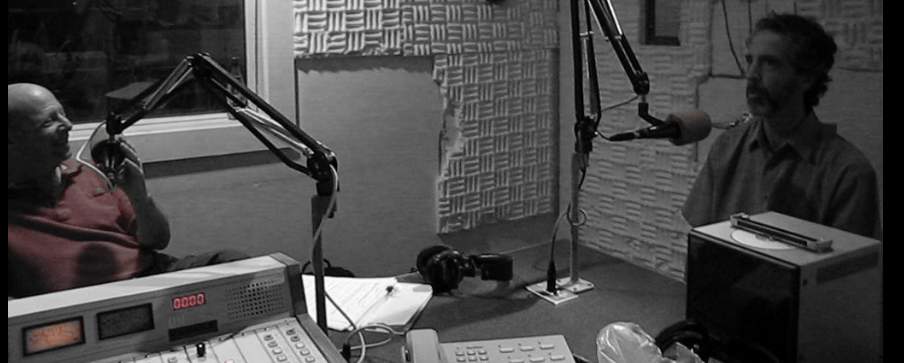
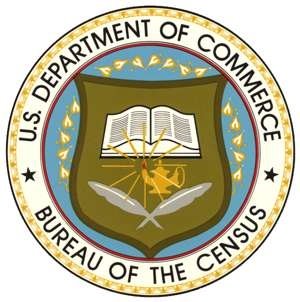
Census Bureau Case: Johnson v. Locke
Earlier this year, thousands of people of color who applied with the 2010 Census were deemed ineligible or deterred from the application process. The Center for Constitutional Rights co-counsel Outten & Golden and others filed a federal lawsuit in the Southern District of New York against the Census Bureau for race and national origin discrimination in the hiring of temporary workers. In Johnson et al. v. Locke, CCR says that the U.S. Census Bureau’s practice of running job applicants’ names through the FBI criminal records database-a notoriously inaccurate and incomplete database-disproportionally excludes applicants of color and deters them from completing the application process. Basically, anyone with an arrest will not be eligible, including those arrested and not charged in a demonstration for example.
This practice directly undermines the Census Bureau’s self-avowed commitment to hiring temporary workers from within historically under counted communities, such as low-income people of color and immigrants.
African Americans, Latinos and Native Americans are subject to exceedingly disproportionate rates of contact with the criminal justice system, from disparate rates of stops-and-frisks and arrests, to higher conviction rates and harsher criminal penalties. Lawsuit Website.
Sam Miller:
- I’m one of the litigators of a class action lawsuit against the Census Bureau based on its hiring practices for those who would be doing the counting process.
- The Census Bureau eliminates virtually anyone who has ever been arrested.
- I was arrested for civil-disobedience and if I were to go to the Census and apply for a job and I were to get a letter that your name popped up on the FBI database, you have to get an official court record of your arrest and if you can’t do it. You’re out.
- You get a form letter that says you’re flagged for having some criminal record. Roughly one quarter of the adult US population has a record in the FBI database. The FBI database is flawed with an enormous amount of errors in it. It includes things like an arrest without a prosecution, juvenile records, expungments.
- Tens and even hundreds of thousands of people effected by hiring policy.
- This is what we call a disparate impact lawsuit. The challenge to the policy is, here you have a policy that is checking people’s criminal background and excluding them on the basis of that background. The discrimination occurs because of the enormous disparity that’s in the criminal justice process.
- I believe this is the largest employment discrimination case for many years. We’re talking about 700 thousand were excluded from these jobs, just on the basis of this form letter that went out.
- This information came to us in the Spring 2010 and we got the litigation underway as fast as we could.
- What were looking for now is to change their policy and practice. They can’t deny people employment based on arrest records where there’s never been a prosecution, there’s never been a conviction.
- We’re also asking for damages. We have a class of over 100 thousand people who should be compensated for the jobs they should have gotten. My concern is it’s the tip of the iceberg, that there is a broader problem within the federal government. We learned that the Census Bureau did it the same way 10 years ago.
- The standard question employers should is has there ever been a conviction, it should not be has there ever been an arrest because that’s irrelevant.
- My hope is that word of how completely outrageous the policy in the Census Bureau is gets up high into the government, whether its the Secretary of Commerce, the White House. Credit history is also a very significant issue that’s related.
- The New Jim Crow by Michelle Alexander – furthering the under caste.
Guest – Attorney Sam Miller, with co-counsel Outten & Golden. For more than two decades, he has represented plaintiffs in individual and class action civil rights cases.Prior to joining O&G in July 2009, Sam was the Legal Director at the Center for Constitutional Rights, where he directed a twenty-person legal staff in domestic impact litigation (including a recent victory against the New York City Fire Department based on class-wide race discrimination), international human rights litigation (including a recent multi-million dollar settlement against Shell Oil for human rights abuses and environmental degradation in Nigeria), and the Guantànamo Global Justice Initiative.
—————–
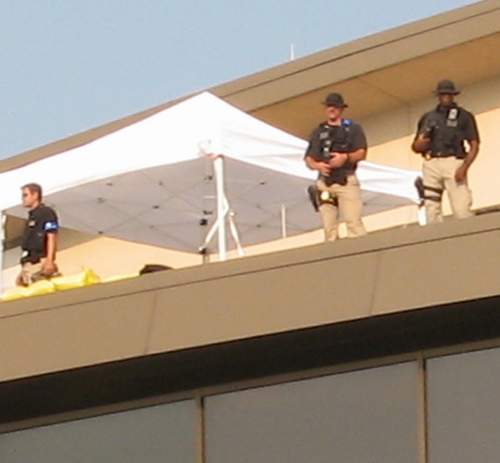
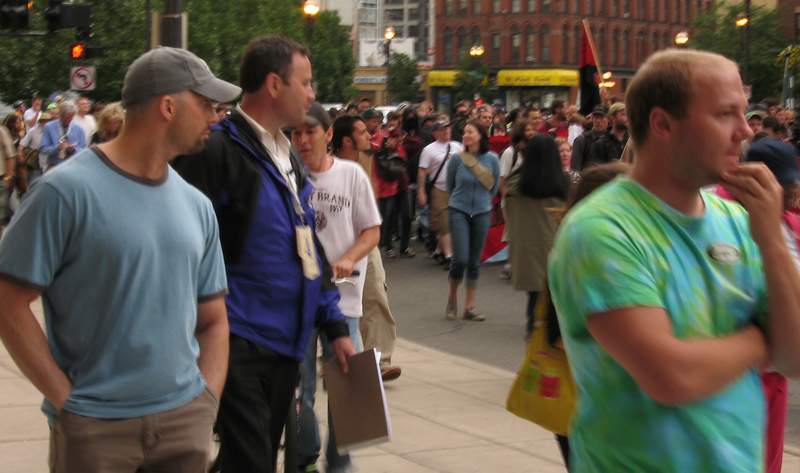
FBI Inappropriately Tracked Domestic Advocacy Groups
In the last year we’ve reported on the FBI’s over-reaching authority in cases that profile Muslims and the use of informants to entrap people on terrorism charges. Now, in a report released by the Justice Department the FBI is exposed for inappropriately targeting left leaning groups after 9/11. Among those groups surveilled are PETA, Greenpeace and the Catholic Worker. In the case of The Catholic Worker, the OIG report concluded that the FBI inappropriately characterized” certain “nonviolent civil disobedience” as terrorism-related. The Catholic Worker is a group committed to “nonviolence, voluntary poverty, prayer and hospitality for the homeless.
The four year internal investigation “found no evidence that the FBI had any information at the time of the event that any terrorism suspect would be present at the event.” There are many other examples. The report concluded, that FBI Director Robert Mueller “unintentionally provided inaccurate testimony to Congress” in 2006 about an anti-war rally in Pittsburgh four years earlier. Download PDF Copy of Report
Thomas Cincotta:
- This report was prompted by media reports of FBI surveillance of domestic political organizations.
- These reports came to light through several FOIA requests. The report illustrates a really broad scope of authority that the FBI has right now.
- This report covers from 2001-2006. Sheds a lot of light on what the FBI is doing and what they’re characterizing these days as terrorism. There seems to be some disconnect with reality here because of who the FBI is choosing to investigate.
- Half of the report focused on the investigation of a pacifist group in Pittsburgh called the Thomas Merton Center.
- Why did the FBI focus on an anti war group? These terms forceful and violent spelled out in FBI policy, so there’s a lot of discretion to slap this terrorism label on their investigations which can be extraordinarily prejudicial to their targets.
- An example of the broad definition of terrorism, the FBI made a determination in the case of the Catholic Worker, that spilling human blood on the walls and an American flag were forceful acts and damage to government property. They are immediately put on the VGTOF. The VGTOF list is used by all of the screening centers and by TSA, Customs Bureau. . .
- There’s a complete disconnect here in what the common notion of what terror is is. Michael Ratner: This verifies what we been thinking about for 10 or 11 years.
- There’s an emphasis on ideology, which is a very sloppy way to do criminal law enforcement work. It has a very predictive quality. Meaning, organization X has said this, espouses this in its philosophy that means we can expect that intends to do Y. This report demonstrates we can’t trust the FBI to police themselves.
- We need mechanisms in place so when people are targeted unfairly by the government they can be held to account. Minnesota blog on RNC arrests.
Guest – Thomas Cincotta, Project director with the Political Research Associates. A criminal defense lawyer, he led the Denver chapter of the National Lawyers Guild in support of peace groups and others during the 2008 Democratic National Convention, and connected progressive lawyers with other community efforts around sentencing reform, immigrant rights, and police misconduct. He also represented migrant farm workers and served on the board of El Centro Humanitario, Denver’s first day laborer center. He currently serves on the NLG’s national board and international committee. Before becoming a lawyer, Cincotta worked as a labor representative for UNITE HERE Local 217 in Providence, Rhode Island.
————————————————————————–
Civil Liberties, Human Rights, Prison Industry, Truth to Power
Podcast: Play in new window | Download
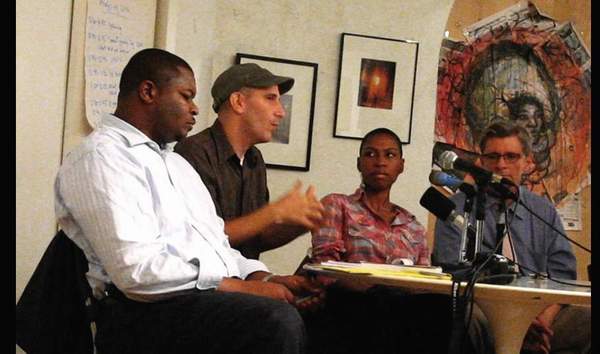
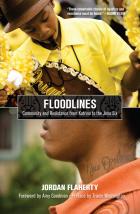
Community and Resistance on the Gulf Coast: Five Years After Hurricane Katrina, Four Months After the BP Drilling Disaster. Speakers: Rosa Clemente, Jordan Flaherty, Damon Hewitt, and Shantrelle Lewis. Moderated by attorney Eric Poulos. This week we hear from Jordan Flaherty and Rosa Clemente.
Jordan Flaherty. Jordan is the author of the book Floodlines. He’s a journalist and community organizer based in New Orleans. He was the first journalist with a national audience to write about the Jena Six case, and played an important role in bringing the story to worldwide attention. His post-Katrina writing in ColorLines Magazine shared a journalism award from New America Media for best Katrina-related coverage in the Ethnic press, his reporting has been featured in the New York Times, and audiences around the world have seen the news segments he’s produced for Al-Jazeera, TeleSur, GritTV, and Democracy Now. Safe Streets
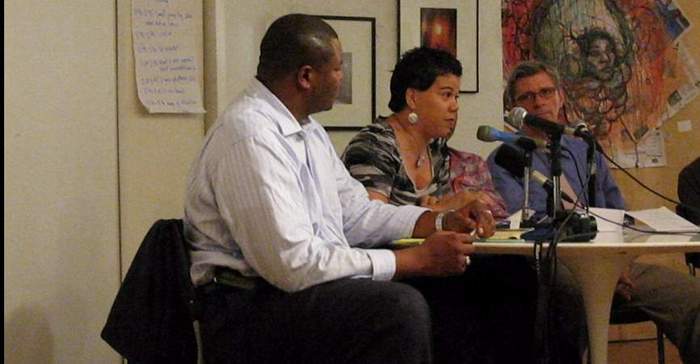
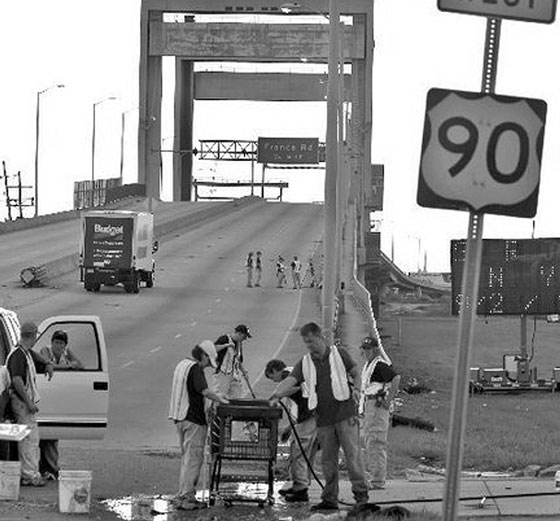
Rosa Clemente, community organizer, independent journalist and hip-hop activist. She was the vice presidential running mate of 2008 Green Party Presidential candidate Cynthia McKinney in the 2008 U.S. Presidential election. Clemente was born and raised in South Bronx, New York. She is a graduate of the University of Albany and Cornell University. Clemente has been delivering workshops, presentations and commentary for over ten years.
Clemente’s academic work has focused on research of national liberation struggles within the United States, with a specific focus on the Young Lords Party and the Black Liberation Army. While a student at SUNY Albany, she was President of the Albany State University Black Alliance (ASUBA) and Director of Multicultural Affairs for the Student Association. At Cornell she was a founding member of La Voz Boriken, a social/political organization dedicated to supporting Puerto Rican political prisoners and the independence of Puerto Rico.
—
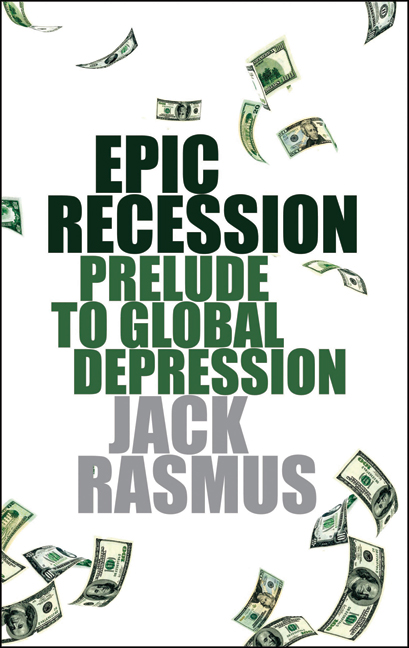
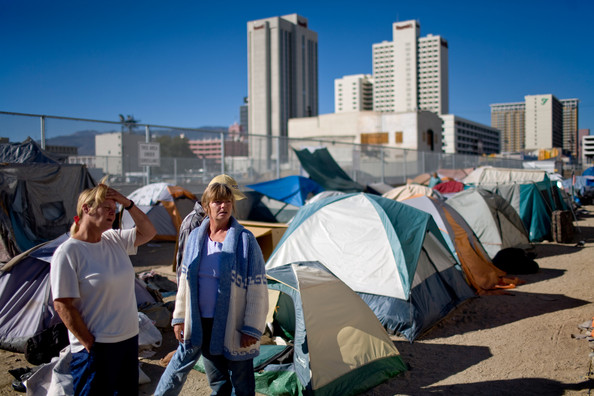
Author, professor Jack Rasmus joins hosts during fund raising in an interview about his recent book, Epic Recession: Prelude to Global Depression. Rasmus says another bank failure in the world could plunge economies into a depression. Who are the banks lending to? Rasmus says banks haven’t lent to small, medium businesses in the US, they lending collapse has gone on for 15 months. The banks have lent to hedge funds, private equity firms and speculators who have invested in foreign markets, Chinese commodities, oil and gold. Meanwhile, private investors and non-bank businesses continue to invest trillions into derivatives and speculative markets away from solid investments and production. Review
Jack Rasmus:
- I think its necessary to explain what’s really going on. How we got here, how it’s different. Why is it so difficult to extracate from it? The first 3 chapters are theoretical, the next few are historical.
- 1907-1914 – You bail out the banks, and there’s no fiscal stimulus and what you get is an extended period of stagnation. It didn’t end until the massive fiscal spending of WWI.
- A type II Epic Recession, the banks aren’t bailed out, and there isn’t sufficient fiscal stimulus. We had two banking crisis, then followed by another one in 1932 and 1933.
- Jump forward, there’s a possibility of another banking crisis somewhere in the world, if so, then a global depression. Banks have been engaged in this speculative shift, where they built up this huge level of debt.
- There are about 25 million without jobs. The government number is 14 million, the U3 unemployment.
- 7 million homes foreclosed. 3 million over 90 days delinquent.
- The first thing you got to do is create a massive 10 million job program. You got to finance 10 million jobs and that will cost a trillion dollars.
- The banks are sitting on a trillion dollar cash horde. Private businesses, non bank businesses are sitting on a 1.84 trillion dollar cash horde.
- That’s not counting the 750 billion. The money is there, it’s not being spent after they’ve been bailed out.
- Obama was only trying to put a floor on the consumption collapse. Unemployment benefits, give some states money, retirees, but that’s played out.
- What we need in this country is what I call utility banking. Create a 401K pool that the government matches by individual contributions and invest in alternative energies.
- The Global Money Parade: There is 10 to 20 trillion dollars of speculative banking sloshing around the world now causing all these bubbles. In the hands of shadow banking institutions, wealthy investors who are tied into the major commercial banks. They’re creating financial fragility as more and more non bank businesses participate in derivatives trading.
Guest – Author and Professor, Jack Rasmus teaches in the Department of Economics and Politics at St. Mary’s College, Moraga, California.
Solutions list from our March 2009 interview with Professor Jack Rasmus.
Solutions:
- No way out of housing crisis without nationalizing housing market.
- Create a new government agency and properly fund it, – 900 billion dollars – it would create a small residential and business loan agency. Go in there and reduce long term principle and interest to long term averages that existed before 2002’s run up of huge speculation.
- That would be for all loans, not just the ones in foreclosure. Which would stimulate consumption not just shore up housing industry. Similar to the Homeowners Loan Corporation of the 1930s.
- Auto Companies – You can’t just have 3 US Auto Companies surviving. They have to be nationalized if they’re going to put that much government money into them. We don’t give them a penny unless they stop their investment and expansions overseas.
- Ford is building big plants in Petersburg Russia. GM is building big plants in Shang Hai, China. Immediately they should be required to build cars with proper mileage. Bring back 2 trillion of the 6 trillion that’s been stuff away in offshore tax havens in the last 20 years.
————————————————————————-
Civil Liberties, Criminalizing Dissent, Habeas Corpus, Human Rights, Military Tribunal, Political Prisoner, Prison Industry, Supreme Court, Targeting Muslims, Torture, Truth to Power
Podcast: Play in new window | Download
Updates:
—
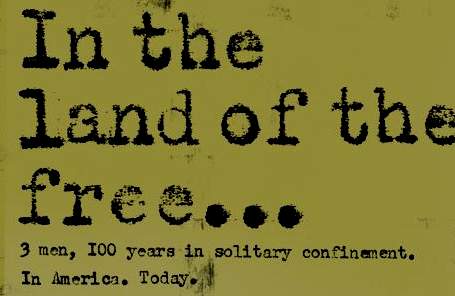
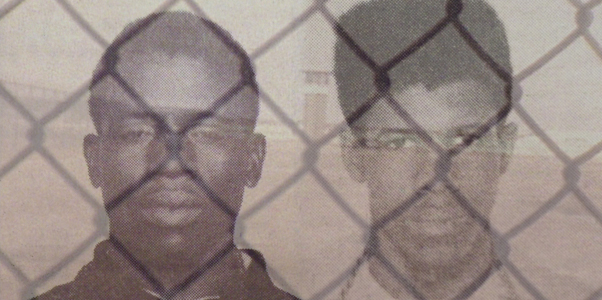
In the Land of the Free, a film by Vadim Jean
Director Vadim George joins us to discuss his recent documentary film “In the Land of the Free.” As many listeners may know, the Angola 3 are Robert King, Albert Woodfox and Herman Wallace. Each had arrived to the Louisiana State Penitentiary in the late 1960s. While in prison, and in contact with Black Panthers, the men helped build a prison chapter of the Black Panthers. They organized inmates to end systematic rape and violence and worked as jailhouse lawyers. The men have spent a combined century in solitary confinement in the Angola prison. Vadim’s powerful documentary explores the issues of accountability and examines the biases against the sentencing of African Americans compared to Whites and Latinos. The film is narrated by Samuel L. Jackson, and it’s noted toward the end, that there is a pending civil suit ‘Wilkerson, Wallace and Woodfox’ vs the State of Louisiana, ruled by the US Supreme Court and to go to trial based that their 30+ years in solitary confinement is “inhumane and unconstitutional”. This case could stop long-term solitary confinement in US prisons.
Vadim Jean:
- I was friends with Anita Roddick, she knew Robert King, and when she passed away in 2007, Robert King was one of the speakers at her memorial. They wouldn’t let me film in the prison.
- The Angola 3 came together in the New Orleans parrish prison in the 1970s.
- The criminals were put in with the Black Panthers and the Black Panthers educated the criminals.
- In the 1970s Angola was the bloodiest prison in America.
- Robert King was told why he was kept in solitary confinement after 25 years in CCR (solitary confinement)
- Because he was being investigated for the murder of Brent Miller, which happened when he wasn’t even in the prison. They’re incredible human beings. They’re strong men. They’re self educated, in prison.
- I think they have their side, the fact that they know they’re innocent, and that makes you strong, that’s made them incredibly strong. They refused to be beaten.
- Robert is free. His conviction was overturned in 2001. People have reacted strongly to the film.
- I’ve tended to make drama comedies. I made a completely mad film called Jiminy Glick in Lalawood with Martin Short.
- I made this film for Anita. (Anita Roddick) The Roddick Foundation.
Guest – Vadim Jean, began his career directing commercials for products such as Blockbuster Video, Woolworths, The Observer and Mercury 121 Mobile Phones. He then moved on to music videos for Elton John and Oasis before co-directing his first feature film, Leon the Pig Farmer (1992). For his work he won an Evening Standard British Film Award for Most Promising Newcomer, a Chaplin Award for Best First Feature at the Edinburgh International Film Festival.
——–
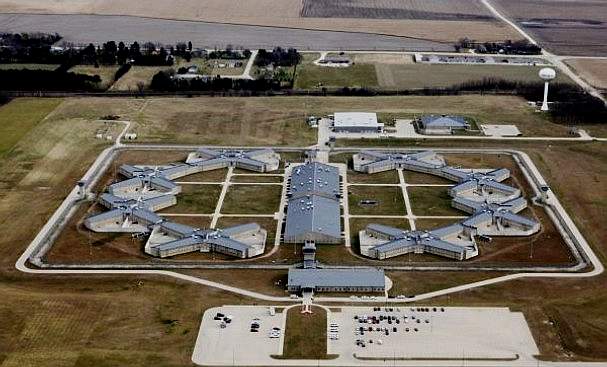
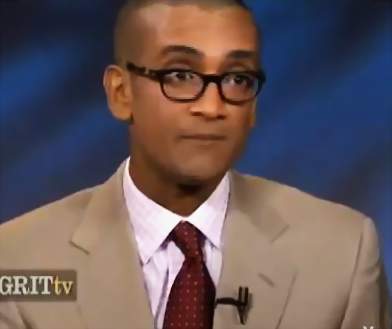
Law and Disorder Barack Obama Series – CCR Staff Attorney Shane Kadidal
We’re joined by Center for Constitutional Rights staff attorney Shane Kadidal to give us an overview on several critical topics we’ve been following over the years here on Law and Disorder. We look at what is happening in Guantanamo right now, the Obama policy of preventive detentions and the state of Habeas Corpus in the United States. In January of 2009 Barack Obama issued orders to close Guantanamo Bay prison. There was talk of transferring prisoners to a supermax prison in the United States. Military tribunals move forward for Guantanamo prisoners.
Shane Kadidal:
- What we won is the right to get into court and challenge the legality of your detention. CCR won that in 2008
- Obama gets into office and says he’s going to close Guantanamo Bay Prison in a year.
- Obama to set up expert agency to decide what to do with people in Guantanamo prison
- About 50 cases have gone forward and we (CCR) won 72 percent of the cases
- About 180 left in Guantanamo. Obama has improved physical conditions for detainees in Guantanamo, but they’re still stuck there. Nothing much has changed, we see stasis, there isn’t much political movement.
- About a month into the administration, the Obama Department of Justice says our position is the same as the Bush administrations on Bagram AFB prison
- We’re taking the same legal position about executive power as the previous administration – state’s secrets about rendition
- Six hundred people in Bagram right now. Bagram is an active war zone, can’t have courts interferring
- About 30 of the remaining 180 in Guantanamo will be charged. Most of the people brought there were innocent. The victim of profiling policies.
- General Stone says 400 of the 600 hundred in Bagram Prison have done nothing and should be released immediately. Task Force report on Guantanamo prisoners. 10 percent leaders of Al-Qaeda, 20 percent had a logistics role, others are low level soldiers. This is false.
- There are innocent people in Guantanamo, who have been there for 8 years.
- We still have a military commissions, an indefinite detention system. Lieberman proposing to strip citizenship from terrorism suspects so they can be interrogated without Miranda warnings.
- Moving Guantanamo Prison to Thomson Prison in Illinois.
- Obama as committed to removing checks on executive power
Guest – Shane Kadidal senior managing attorney of the Guantánamo Global Justice Initiative at the Center for Constitutional Rights in New York City. He is a graduate of the Yale Law School and a former law clerk to Judge Kermit Lipez of the United States Court of Appeals for the First Circuit.
Past shows with Shane Kadidal
Civil Liberties, Human Rights, Prison Industry, Surveillance, Truth to Power
Podcast: Play in new window | Download
Updates:
—-
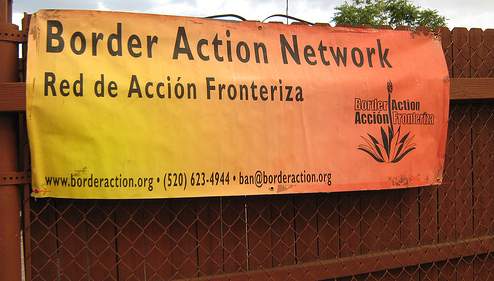
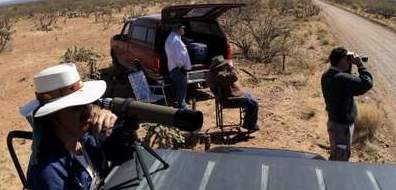
SB-1070 v. Human Rights
Today we get a perspective from the Arizona border on how the state’s new immigrant law will impact human rights. Many have expressed outrage at the state law that would force police to determine the immigration status of someone suspected of being an undocumented immigrant. Jennifer Allen, Executive Director of Border Action Network joins co-host Heidi Boghosian. Border Action Network was formed in 1999 and members work with immigrants and border communities in Southern Arizona to ensure human rights are respected, and human dignity upheld.
Jennifer Allen – Border Action Network:
- SB 1070 is a broad stroke, back door approach of enforcement of federal immigration laws.
- Other components of the legislation, include criminalizing day laborers and those who seek to hire them.
- Other provisions in the bill would require local cities, towns, agencies to save information about people’s immigration / citizenship status and then share that information with other agencies.
- Law enforcement being required, with lawsuits threatened against them, to ask people about their immigration status, based on their appearance. Indeed we do need a sensible immigration policy. We need borders that are safe, secure, orderly.
- If SB 1070 is not stopped in Arizona, it will surely spread throughout the country.
- SB 1070 fiscal analysis for 1 county in Arizona: would cost 10s of millions of dollars for trying to implement law.
- We’ve been calling on the Obama Administration to oppose this legislation.
- This law is a combination of six or seven pieces of legislation that the bill’s sponsor, Senator Russel Pierce has been trying to get through the Arizona legislature, the last 5 years.
- Targets of attrition, wearing people out so they leave Arizona.
- It’s not motivated by public safety and increasing security, it’s much more about pushing families out of the state of Arizona.
- A strong presence of white nationalists groups in Arizona. Minutemen style, state sponsored vigilante group – Border Security Commission Bill.
Guest – Jennifer Allen – Executive Director of Border Action Network
———

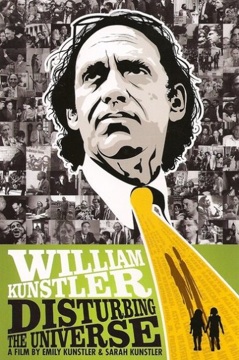
William Kunstler: Disturbing the Universe on DVD
We are excited to welcome back Sarah Kunstler, daughter of the late radical civil rights lawyer William Kunstler, and co-director of a biographical documentary about her father, titled William Kunstler: Disturbing the Universe. The movie is now available on DVD, with extras. In our last interview, Emily told us that it was frightening for us to share the film with the world. She says the first 10 times watching with the audience, she clenched fists, couldn’t even look. The movie is the work of 4 years, but really 30 years says Sarah. Since they were children, she and her sister have been collecting footage and material for the film.
The movie has been described as a sensitive, truthful and insightful film about a man who stood at the center of a confrontational movement and became the public spokesperson for communities standing up to injustice. The story of this radical attorney is told by his daughters in an intimate narrative, from the Chicago 7 to the Attica trials, then the American Indian Movement’s occupation of Wounded Knee.
Sarah Kunstler:
- We had a theatrical run in about 25 cities.
- Chicago 8, DVD Extra: What you hear is someone unafraid of being held in contempt, someone outraged by the treatment of his clients the court room is an intimidating place. He didn’t let the austere surroundings get to him.
- What I’ve learned since making the film, is my relationship with my father continues.
- When Emily and I started making this film, we thought it would be something we would be getting over.
- This film was written in pieces, it was a struggle, I didn’t know how to write around something or Emily and I would fight in how to say something.
- He seems that he was painfully aware that he was being followed from state to state. The FBI had been listening to his speeches and trying to indict him with trying to incite a riot.
- He makes a differentiation between picayune violence and real demonstration.
Guest – Sarah Kunstler, co-producer and attorney. Sarah Kunstler graduated from Yale University with a BA in Photography in 1998 and from Columbia Law School with a JD in 2004. She is currently a criminal defense attorney practicing in the Eastern and Southern Districts of New York. Emily, her sister is a film major and former video producer for Democracy Now. They recently won the L’Oreal Women of Worth Vision Award at the 2009 Sundance Film Festival and the Special Jury Prize for Best New Filmmakers at the Traverse City Film Festival.
————————————————————————————————
Afghanistan War, Civil Liberties, Gaza, Human Rights, Iraq War, Prison Industry, Targeting Muslims, Truth to Power
Podcast: Play in new window | Download
Updates:
—————-
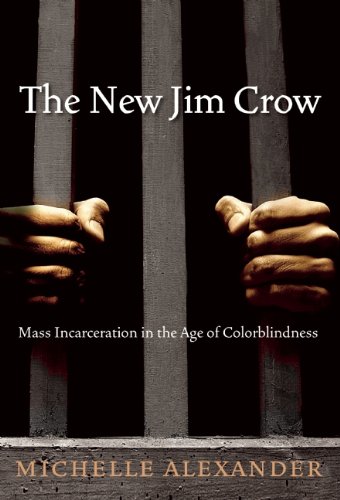
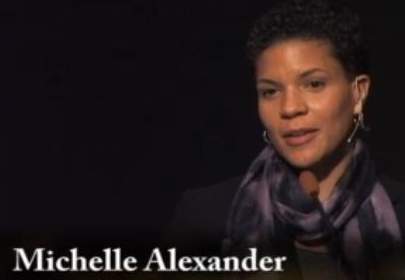
The New Jim Crow: Mass Incarceration in the Age of Colorblindness – Michelle Alexander
Michelle Alexander, author of the new book The New Jim Crow: Mass Incarceration in the Age of Colorblindness joins hosts. Michelle book has been called an incisive critique of racial caste system in America. As many celebrate the “triumph over race” with the election Barack Obama, the majority of young black men in the US are locked behind bars or permenantly labeled felons. Michelle Alexander, a former litigator who is a legal scholar, argues that the civil rights community—and all of us— are challenged to place mass incarceration at the forefront of a new movement for racial justice in America.
Michelle Alexander:
- I began in my own research to question the prevailing political media narrative about the reasons of people of color and ghetto communities cycle through the criminal justice system today, it is not as it appears.
- I argue that in a few decades after the collapse of Jim Crow, we as a nation, have managed to re-create as a racial caste in America, in some major American cities, the majority of African American men, are locked behind bars, labeled felons for life.
- Legally discriminated in employment, housing, access to education, and public benefits. We have not ended racial caste, we redesigned it.
- The Drug War was declared in relation to racial politics, not drug crime. About 30 million were arrested for drug offenses after the launch of the drug war. Most were for marijuana possession, now considered less harmful than alcohol or tobacco.
- Drug markets like American society generally are segregated by race and class
- The Supreme Court has made it virtually impossible for these cases to be brought.
- Baldus Study: McKleskey v Kemp
- Finding proof of conscious intentional discrimination is nearly impossible. Severe racial disparities are of no consequence, immunized not just the death penalty.
- I wrote this book, largely because I was deeply troubled by the failure of civil rights organizations and black leadership in this country to place mass incarceration and the war on drugs at the top of our racial justice agenda.
- Ten of millions of people in the United States are now regulated permanently to an under-caste, who are barred by law from seeking jobs or housing, public benefits, food stamps.
- Prisons have been holding many rural towns together as jobs have disappeared. The majority of people put behind bars are non-violent offenders. Every race suffers from this drug war, there are white people doing decades in prison for drug possession charges. The suffering of the drug crosses the color lines, and we got to be able to galvanize a level of public awareness and support.
- Something akin to a racial caste system is alive and well in the United States.
Guest – Professor Michelle Alexander, joined the OSU faculty in 2005. She holds a joint appointment with the Moritz College of Law and the Kirwan Institute for the Study of Race and Ethnicity. Prior to joining the OSU faculty, she was a member of the Stanford Law School faculty, where she served as Director of the Civil Rights Clinic.
Professor Alexander has significant experience in the field of civil rights advocacy and litigation. She has litigated civil rights cases in private practice as well as engaged in innovative litigation and advocacy efforts in the non-profit sector. For several years, Professor Alexander served as the Director of the Racial Justice Project for the ACLU of Northern California.
———
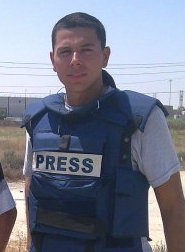


Ayman Mohyeldin, Al-Jazeera TV correspondent
Ayman joins hosts in the studio. He is an Al Jazeera TV correspondent and former CNN producer based in Baghdad. He was the only news producer allowed to observe and report on the US handover of Saddam Hussein to an Iraqi judge. Ayman has been stationed in the Gaza Strip since May 2008, where he has covered the Gaza siege. Ayman talks with hosts about his experience covering the destruction during Operation Cast Lead. Filmmakers and producers are working on a documentary film about Ayman’s war reporting in Palestine. Facebook link
Ayman Mohyeldin:
- Saturday December 27th, 2008, I had been based in Gaza. It had been quiet in Gaza up to November 4th.
- We started hearing the first wave of Israeli air-strikes that destroyed government buildings, police station within minutes. It kicked of a series of air strikes throughout the day. 200 hundred Palestinians were killed that day.
- We really saw everything, I can’t begin to describe the horrors of what we saw. On the first day we went to the main Gaza hospital.
- People of Gaza were trapped in a territory subjected to a very modern sophisticated, well trained and equipped Army.
- By Israel’s own admission rocket fire into Israel had dropped 98 percent 4 months ago (before Operation CastLead)
- What were the real reasons for the attack, the war was unnecessary given what was achieved in the 4 months prior.
- The siege on Gaza has allowed Hamas to tighten it’s grip on Gaza. The siege has not punished Hamas.
- Palestinians have recycled the rubber and steel from the destruction.
- I was standing on a rooftop and they were dropping hundreds of leaflets from planes, that read “your area is going to be attacked, if have any information about Hamas, please call this number.”
- Goldstone Report: Israel while bombing did not distinguish between military and civilian targets. Not a mistake.
- Targets include – Mosques, schools, ambulance drivers, government buildings, ministries, Palestinian Legislative Council Building.
- Gaza, historically was not an affluent place, it was a merchant trade route from Africa into Asia and Europe.
- Stunted growth is starting to appear among Palestinian children.
- Gaza: Desperate, frustrated, a sense of abandonment by the international community.
Guest- Ayman Mohyeldin, Arab American journalist based in the Middle East and is the Gaza Correspondent for the English language channel Al-Jazeera. Previously a producer with CNN and NBC, Ayman was one of the first western journalists allowed to enter and report on the handing over and trial of the deposed President of Iraq Saddam Hussein by the Iraqi Interim Government for crimes against humanity
———————-
Afghanistan War, Civil Liberties, FBI Intrusion, Habeas Corpus, Human Rights, Prison Industry, Surveillance, Targeting Muslims, Torture
Podcast: Play in new window | Download
Updates:
—–
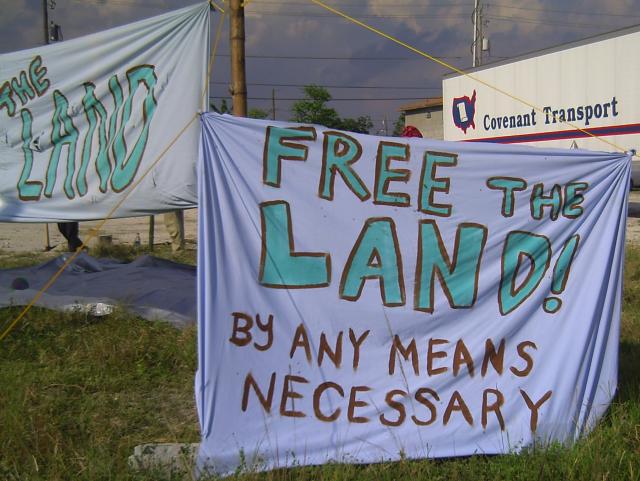
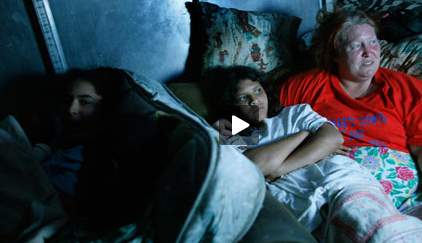
Take Back The Land and The Center For Constitutional Rights Delegation To South Africa
The national movement, Take Back the Land has demanded housing for the homeless in Miami, New York City and is in South Africa to engage in anti-eviction and land reform work. Lawyers with the Center for Constitutional Rights will also join Take Back the Land and provide legal support to the social justice movements. The two groups will be in Cape Town with the Anti-Eviction Campaign and 3 days in Durban with Abahlali bs Mjondolo or (ABM). Among the core beliefs of this project called the Center for Pan African Development are, land is an essential element of liberation, the black community must collectively control land in the black community and the path to liberation is pave through self-determination, not the accommodation of those in power.
Sunita Patel:
- The history of Apartheid is so connected to land and redistribution of land. We spent a few days in Cape Town with the Anti-Eviction Campaign. We traveled to Durban and visited with ABM there. Throughout the trip activists and community members had shared stories of displacement and mass evictions at the government’s hands, without any redress. We have a lot to learn from the movement in South Africa.
- In the United States, we can’t think beyond the private ownership of land.
- Housing is not a constitutionally protected right. Where we can gain from international human rights law, we need to infuse that into our work. The Universal Declaration of Human Rights, recognizes housing as a human right.
- South African Constitution states in articles 26 and 33 affording one house for one family.
Guest – CCR staff attorney, Sunita Patel is involved with racial profiling, immigrant rights and other human rights litigation. Prior to her position at CCR, she held a Soros Justice Fellowship at The Legal Aid Society, Immigration Law Unit in New York where she represented immigrant detainees in removal proceedings and worked with criminal justice and human rights groups to create independent community oversight for detention operations through public accountability boards.
————–
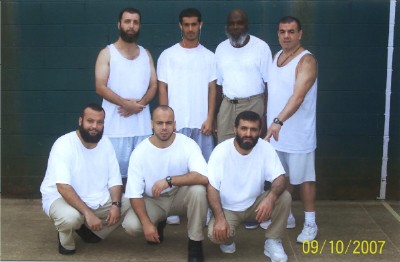

CCR Challenges Experimental Prison Units that Restrict Communication
The Center for Constitutional Rights filed a lawsuit challenging violations of fundamental constitutional rights, including the right to due process, at two experimental federal prison units called “Communications Management Units” (CMUs). The units are being used overwhelmingly to hold Muslim prisoners and prisoners with unpopular political beliefs.
CCR filed Aref v. Holder in the D.C. District Court on behalf of five current and former prisoners of the units in Terre Haute, IN and Marion, IL; two other plaintiffs are the spouses of prisoners. The CMUs were secretly opened under the Bush administration in 2006 and 2007 respectively and were designed to monitor and control the communications of certain prisoners and to isolate them from other prisoners and the outside world. More about Aref
Rachel Meeropol:
- It’s the first time we’ve seen units like this in the federal system. The Bureau of Prisons secretly created these prisons in 2006 and 2007 under the Bush Administration.
- The bureau of prisons initially offered a public comment period and were flooded with comments of what a bad idea this is. They withdrew the public comment and continued to build the prison in secret.
- There’s no meaningful process at all as to who should be put in this unit.
- The Bureau of Prisons has published very broad criteria about the types of individuals, it thinks belongs there.
- The criteria is so broad it could encompass tens of thousands of prisoners.
- When we look at who is being sent the unit, it’s mostly Middle Eastern Muslims, African Americans who have converted to Islam in prison, and also a lot of people with unpopular political views.
- One of our clients Daniel McGowan, is an environmental activist who is serving a term in prison. He never violated a prison rule, he was a low security prison for the first part of his sentence, and then without any reason, he is moved to this highly restricted unit.
- The CMU is an experiment in social isolation. Very few opportunities for visits. Uniquely cruel for individuals who have to undergo it.
- Bad public policy, these individuals are going to be released at some point.
- We are seeking to challenge the extreme limitations on their phone calls and visits.
- Most inmates get 300 minutes a month of phone calls, my clients for years had only one 15 minute call a week.
- For prisoners with large families, this is incredibly difficult. It seems to me this is truly about silencing advocacy from inside the prison.
- Some of our clients including Mr Aref were convicted on terrorism related charges, in his case material support.
- When prisons move prisoners into the CMU of extremely restricted confinement without any process or explanation, of course leads to putting prisoners in the CMU for discriminatory or retaliatory reasons.
Guest – Rachel Meeropol has worked at the Center for Constitutional Rights (CCR) since 2002. She is the co-editor and primary author of the Jailhouse Lawyers Handbook, a widely-requested resource for prisoners, and the editor of America’s Disappeared: Secret Imprisonment, Detainees, and the “War on Terror,” (Seven Stories Press, 2005).
—————–
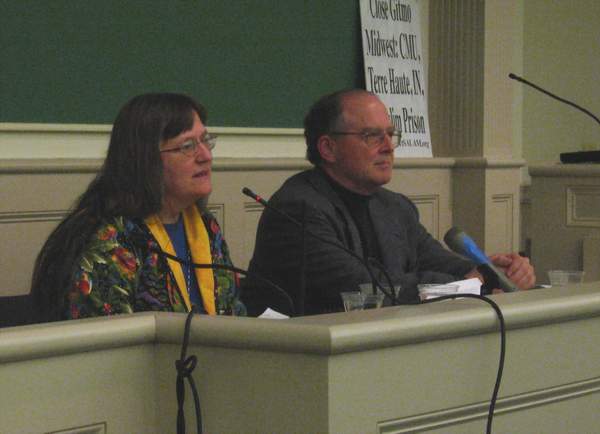
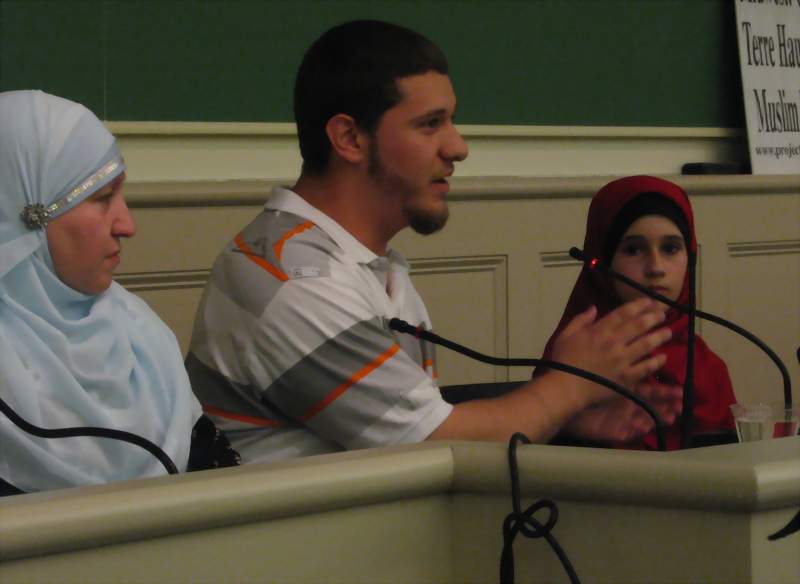
FBI Entrapment: Personal Stories of Preemptive Prosecution
We go now to hear segments from the event titled FBI Entrapment: Personal Stories of Preemptive Prosecution sponsored by the National Lawyers Guild, Middle Eastern Law Students Association (MELSA), Islamic Law Students Association (ILSA) and Law Students for Human Rights.
Families and community members gathered in a room at NYU to discuss their cases, and how their family members were entrapped by FBI informants and agent provocateur tactics. As we have reported in the past years, the FBI have used these tactics to target Muslims and others by offering money and assets within impoverished communities. Some FBI groups target mosques and incite violent action. Most informants are felons, that have made plea-deals with the FBI. As we have seen, these stories make headlines across the country on Memorial Day or the 4th of July, meanwhile, these men implicated in the FBI stings are serving long sentences. We get an inside perspective from their families. We hear from Lynne Jackson and Attorney Stephen Downs from Project Salam. We also hear from 12 year old Lejla Duka, and her cousin, family members with the Fort Dix Five case.
Lynne Jackson / Attorney Stephen Downs
- CCR filed Aref v. Holder in the D.C. District Court
- Aref/Hossain have left behind 2 families, 10 children, ranging in ages 4-16 years old.
- What is going on with our country?
- We formed Project Salam, we need to look at all these case together, there are hundreds of cases.
- We’ve had no response at all from President Obama or Attorney General Holder
- The Cheney one percent doctrine. If there is one percent chance that a Muslim will commit a terrorist act down the road you have to take them out.
- One of the worst things you can do as Muslim is be generous. The government made good use of the material support for terrorism statute.
- Certainly from my point of view, as a lawyer I assume every conversation I have is being monitored. I think all of you should to.
- Check out prisoner database at CMU’s (PDF)
Lynne Jackson, volunteer and co-founder of Project Salam, Attorney Stephen Downs, a retired New York State attorney and a volunteer attorney for the Yassin Aref case. Listen to last year’s Law and Disorder interview.
————————————————————————–











